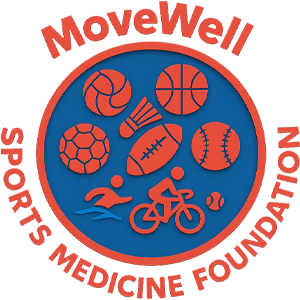American Football is more than a game—it’s a culture built on passion, legacy, and grit. But with the intensity comes real risks. Whether you're in high school or college, here’s your guide to staying safe, performing your best, and setting yourself up for success both on and off the field.
I. Safety & Health: Protect Your Body, Protect Your Future
Football is physical. Protect yourself the right way—so you can keep playing the game you love.
1. Concussions: Know the Facts
It’s a brain injury—not just “getting your bell rung.” Repeat concussions can affect memory, mood, and long-term health.
Gear up properly: Always wear a helmet certified by NOCSAE or other approved standards. Make sure it’s fitted by a pro.
If you feel dizzy, nauseous, confused, or get a headache—tell your coach or athletic trainer immediately. Don’t tough it out.
You must be cleared by a medical professional before returning to play or class. No shortcuts.
2. Beat the Heat
Hydrate all day: Drink water and electrolytes before, during, and after practice. Don’t wait till you’re thirsty.
Ease into the season: Start slow with equipment and intensity so your body can adjust to the heat.
If you stop sweating, feel weak or dizzy, or get chills. pls stop and get help right away.
3. Prevent Other Injuries
Technique over toughness: Learn safe tackling and blocking. Never lead with your helmet, it’s illegal and dangerous.
Train year-round: Build strength (especially core and legs), stability, and flexibility to hold up under pressure.
Warm up + cool down: Dynamic stretches before; static stretches and ice baths after. Don’t skip either.
II. Balance Ball and Books
Grades come first: Stay eligible by keeping your GPA up. No grades, no play.
Manage your time: Use a planner. Balance practices, games, and study time like a pro.
If you want to play in college, start tracking NCAA core course requirements early.
III. Mindset & Team Culture
How you show up matters on the field, in the locker room, and online.
Be coachable: Respect your coaches, teammates, refs, and opponents.
Own your role: Be on time, take care of your gear, and be someone others can count on.
Keep social media clean: College coaches look. Post with pride—or don’t post it at all.
IV. Fuel and Equipment
Get your gear right: Helmets and pads should be professionally fitted. Don’t guess.
Eat with purpose: Carbs before games for energy; protein and electrolytes after for recovery. Skip junk food—it slows you down.
Bottom Line:
Football teaches toughness, brotherhood, and resilience—but it also demands responsibility. Your health and future come first. Protect your body, own your role, and play for something greater than yourself.
Compete with character. Lead with integrity. Leave a legacy.
References:
Centers for Disease Control and Prevention. (2023). Heads up: Concussion in high school sports. https://www.cdc.gov/headsup/highschool/index.html
National Operating Committee on Standards for Athletic Equipment (NOCSAE). (2022). Football helmet standard: NOCSAE 002-20m. https://nocsae.org
U.S. Department of Health & Human Services. (2021). Physical activity guidelines for youth. https://health.gov/paguidelines/




